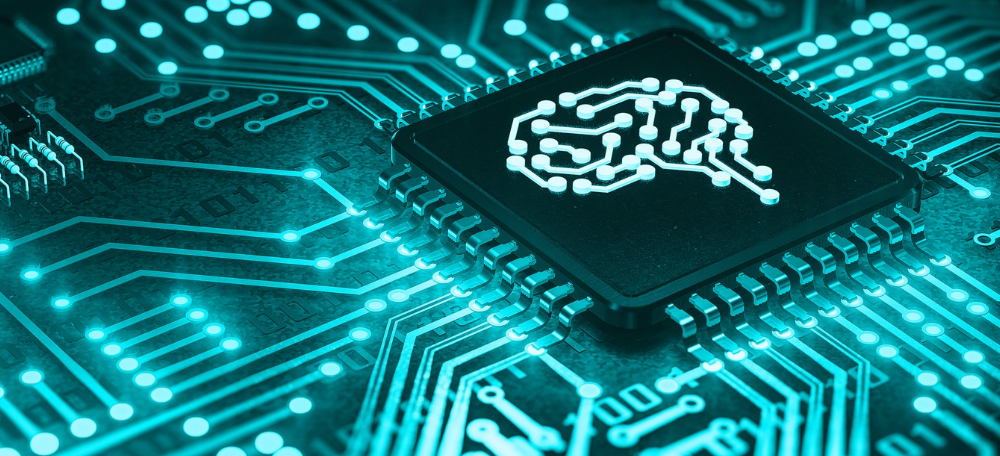Artificial Intelligence (AI) is reshaping industries at an unprecedented pace and cybersecurity is no exception. As the technology grows more sophisticated, a common concern among professionals is whether AI will eventually replace human cybersecurity experts altogether. However, the reality is not so bleak. AI is not here to replace you, it’s a tool to empower you.
The belief that AI poses a threat to job security is understandable, however, cybersecurity professionals can benefit by understanding how AI tools enhance productivity, strengthen defenses, and allow security teams to focus on more strategic, high-value tasks. This article will dive into how you can utilize AI to sharpen your own skills.
The Growing Role of AI in Cybersecurity
The rise in cyberattacks, both in volume and complexity, has put enormous pressure on IT and security teams. From ransomware to phishing schemes to insider threats, organizations must respond quickly and effectively. AI offers a scalable solution, capable of analyzing vast amounts of data, identifying patterns, and reacting to anomalies in real time.
Some key areas where AI is already playing a central role include:
- Threat detection and prevention
- Security event correlation
- Behavioral analytics
- Incident response automation
- Vulnerability management
- Fraud detection
While AI is able to handle these technical tasks at a higher speed than humans, it still requires human oversight, decision-making, and contextual understanding, areas where cybersecurity professionals excel.

1. AI as a Force Multiplier, Not a Replacement
AI can process terabytes of information and spot anomalies much faster than any human analyst. But its capabilities are only as good as the data it receives and the parameters set by professionals. By automating routine and repetitive tasks, AI frees up cybersecurity teams to focus on strategic efforts like developing security policies, engaging in red team/blue team exercises, or educating staff on security best practices.
Rather than replacing cybersecurity professionals, AI can augment their capabilities, making them more efficient and effective.
2. Improving Threat Detection with Machine Learning
Traditional security tools rely on rules and signatures, which can miss zero-day threats or novel attack patterns. AI, especially machine learning, shines in this area by learning from data over time. It can recognize behavioral deviations and flag suspicious activities that wouldn’t normally raise alarms under standard configurations.
Security professionals who understand how to work alongside machine learning models will have an edge. Learning how to interpret AI-generated alerts and knowing when human intervention is needed can turn a good analyst into a great one.
Pro tip: Upskilling in data analysis and basic machine learning principles can dramatically boost your relevance in today’s job market.
3. Enhancing Incident Response and Decision-Making
During a security breach, every second counts. AI accelerates incident response by automatically triaging alerts, correlating related events, and even initiating containment actions like isolating compromised devices. This reduces “alert fatigue” for security operations center (SOC) analysts and allows them to focus on higher-level response strategies.
Cybersecurity professionals still need to validate AI’s recommendations, investigate root causes, and determine next steps. The result is faster, smarter incident response—driven by a human-AI partnership.
4. Boosting Skills Through AI-Powered Tools
Modern security tools are increasingly powered by AI, and many offer intuitive dashboards and guided analytics. Chances are, if you’re managing a SIEM platform, configuring a next-gen firewall, or using endpoint detection and response (EDR) software, you’re already using AI.
Here are some ways AI tools can directly enhance your skills:
- Faster learning: By using AI-driven tools, you become more familiar with advanced workflows, logs, and datasets.
Pattern recognition: You begin to understand how attacks evolve and what warning signs to watch for. - Time management: You spend less time on manual tasks and more time interpreting results, strengthening your critical thinking skills.
5. Supporting Continuous Learning and Adaptability
Cybersecurity is a constantly evolving field, and staying current is essential. AI helps you do just that. Tools like threat intelligence platforms, anomaly detection systems, and AI-based simulators allow professionals to explore attack scenarios and mitigation strategies in a low-risk, educational environment.
You can even use AI-based learning platforms and certifications tailored to the cybersecurity space. For example, services that deliver customized learning paths based on current skill level or that simulate real-world attack scenarios with AI-driven feedback loops.
6. Understanding AI Makes You More Marketable
From a career standpoint, understanding AI in the context of cybersecurity is a competitive advantage. Organizations are increasingly looking for professionals who can integrate AI tools into their security stack or help evaluate vendors and solutions.
By demonstrating an understanding of AI’s potential, and its limitations, you position yourself as a forward-thinking security professional who can bridge the gap between traditional defenses and modern threats.
Skills to consider adding to your toolkit:
- Familiarity with Python or scripting for automation
- Understanding of data science basics
- Exposure to AI/ML tools in cybersecurity (e.g., IBM QRadar, Splunk, Darktrace, CrowdStrike)
- Risk analysis and model bias awareness
7. Human Skills Still Reign Supreme
Despite AI’s powerful capabilities, it cannot replicate key human traits such as ethical judgment, intuition, creativity, and empathy. These are especially important in roles related to policy development, compliance, cybersecurity awareness training, and leadership.
AI can suggest remediation steps during an incident, but it cannot weigh business context, public perception, or legal implications the way a human can. Cybersecurity will always need critical thinkers, problem solvers, and ethical leaders who can see beyond the algorithm.
Utilize AI as a Partner, Not a Threat
It’s true that AI is capable of making certain tasks obsolete. Especially those that are repetitive, data-heavy, or rules-based. However, this does not necessarily mean cybersecurity professionals will no longer be in demand. If used correctly, AI is able to make you faster, more accurate, and better informed. It enhances your ability to detect, respond to, and prevent cyber threats, while giving you the bandwidth to focus on the human-centric aspects of security.
Whether you’re an entry-level analyst or a seasoned CISO, embracing AI as a collaborator, rather than a competitor, will be essential to staying relevant and effective in the evolving landscape of cybersecurity.
If your organization is looking to hire experienced security professionals who stay ahead of the curve and embrace emerging technologies like AI, contact Kris Rides at kris.rides@tirosec.com.
